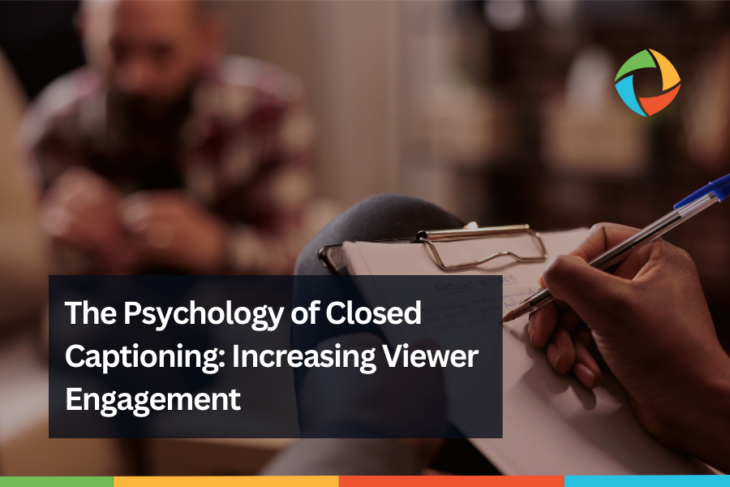The Psychology of Closed Captioning: Increasing Viewer Engagement
Have you ever watched a video with closed captions and found yourself more engaged and better able to comprehend the content? You’re not alone. Closed captioning can have a powerful impact on viewer engagement and retention, and understanding the psychology behind it can help you create more effective and inclusive content.
As a business owner or content creator, you want your audience to engage with your content and remember it long after they’ve viewed it. Closed captioning is a powerful tool that can help you achieve this goal. In this article, we’ll explore the psychology behind closed captioning and how it can increase viewer engagement.
What is Closed Captioning?
Closed Captioning refers to the practice of displaying on a screen synchronized text that describes and/or transcribes the audio portion of the media. Closed captions can be turned on or off by the viewer, and they are typically used to provide accessibility to people who are deaf or hard of hearing. However, closed captioning has benefits beyond accessibility, as we’ll explore in this article.
The Psychology of Closed Captioning
There are several psychological explanations as to why closed captioning can increase viewer engagement:
1. Cognitive Load Theory
People have a limited amount of mental resources that they can allocate to processing information, as suggested by cognitive load theory. When viewers watch a video without closed captioning, they have to divide their attention between listening to the audio and processing the visuals. Therefore, this can create a higher cognitive load and make it more difficult for viewers to comprehend and retain the information. Closed captioning reduces cognitive load by providing a text-based version of the audio, making it easier for viewers to process and understand.
2. Dual-Coding Theory
Dual-coding theory suggests that presenting information in both verbal and visual formats helps people process and remember it better. Closed captioning provides a visual representation of the audio, which reinforces the verbal message and helps viewers remember the information.
3. Attentional Processes
Closed captioning can also help viewers maintain attention and focus on the content. When viewers watch a video without closed captioning, they may become distracted or lose focus if they miss a word or phrase. As a result, closed captioning ensures that viewers don’t miss anything and can stay engaged throughout the video.
4. Multitasking and Memory
Finally, closed captioning can help viewers multitask and remember information better. When viewers watch a video with closed captioning, they can read the text while listening to the audio. This allows them to multitask and process the information more efficiently. Additionally, closed captioning can improve memory by providing a text-based version of the audio, which can help viewers remember the information better.
If you’re ready to take advantage of the benefits of closed captioning, CaptionLabs can help. We offer high-quality closed captioning services for businesses and content creators across a variety of industries. Contact us today to request a quote and learn more about how closed captioning can benefit your content and viewers.

Jake Drown
Jake Drown is our Vice President and oversees our day-to-day operations. Jake thrives on solving our customer’s problems - if you’re stuck at a roadblock, he’s the one you need to call. As a jack-of-all-trades, you never know what you will find Jake doing on the weekends! He and his family are seasoned travelers and can be found anywhere from a mountain top, a forest, a beach, or even a corn field!


